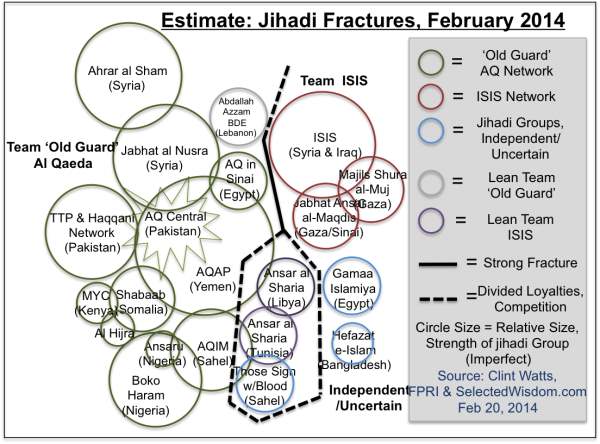SUCH A BIG ISSUE
SO LITTLE ADDRESSED
ARE THERE SOLUTIONS TO STAGNANT PAY IN THE U.S. ? AND WHY DO WE CALL IT STAGNANT WHEN IT’S REALLY IN DECLINE?

It seems to have taken the media an incredibly long time to catch up with the fact that the American Business Model (ABM) isn’t working as far as most Americans are concerned—and even now they are more nibbling around the edges than addressing the core issue—which is the ABM itself. Stagnant pay is merely a symptom—albeit a very significant one.
This what that excellent journalist, David Leonhardt of the New York Times has to say about what he chooses to call ‘stagnant’ pay. There seems to be general aversion to facing up to that emotive word ‘declining.’ However, when costs go up as much as healthcare, education and housing have—whatever about the temporary advantages of less expensive oil—pay, in real terms, is in decline.
Wages and incomes for most Americans have now been stagnant for 15 years. They rose at a mediocre pace for much of President Bush’s tenure in the 2000s, before falling sharply during the financial crisis that dominated the end of his presidency. Mr. Obama helped break the back of the crisis, but the recovery on his watch has been decidedly mediocre, too — especially in terms of paychecks.
Even as job growth has picked up in recent months, wages haven’t grown much more quickly than inflation. As a result, the government’s official statistics suggest that the typical American household makes no more than the typical household did in the final years of the 20th century.
That’s remarkable. There is little modern precedent for a period of income stagnation lasting as long as this one. Official records don’t exist before World War II. But the best estimate is that the Great Depression may be the only other modern time in which incomes for most households in the United States have grown so slowly — or not at all — for so long.
The great wage slowdown has several main causes: globalization, which has forced Americans to compete with hundreds of millions of poorer workers from around the world; technological change, which allows machines to replace human labor in new ways; the slowdown in American educational attainment, even as the rest of the world has continued to become more educated and more highly skilled; and the shifting balance of economic power, away from workers and toward companies and their executives.
The wage slowdown is the dominant force in American politics and will continue to be as long as it exists. Nothing drives the national mood — and, by extension, national politics — the way that the country’s economic mood does, as political scientists have demonstrated. And nothing drives the economic mood as much as wages and incomes, which are the main determinant of material living standards for most households.
Lenonhardt describes the pay issue with some elegance—I’m a great admirer of his writing—but he doesn’t address the ABM issue and fails to come up with solutions.
I’m not going to go into detail about solutions either, but let me make some points.
- As the track record in other countries shows, stagnant pay is not inevitable even in developed countries dealing with globalization.
- Stagnant pay exists here in the U.S. because of a whole series of political decisions which have tilted the playing field fairly steeply to favor capital over labor. The system is rigged in almost ever way in favor of the ultra rich and their followers—and the corporations they own and operate—against labor. This shows in the tax system, in corporate welfare, in the relative absence of worker rights—and so on. All in all, there is a massive bias against labor which has included the near complete crushing of the unions in the private sector. They are currently under serious assault in the public sector.
- The problem has been compounded by a whole series of trade deals which encouraged globalization without compensating the American worker. Corporations can export jobs with impunity or use the threat of doing so to force down pay.
- Neither political party seems really interested in modifying the ABM to make it fair and balanced because both are substantially funded by the ultra rich and corporate interests.
The bottom line is that we have a totally solvable situation which vested interests do not want to resolve for very clear and understandable selfish reasons.
Will anything change the situation? A nationwide populist movement could, but there seems little sign of one emerging—and if one does start, our militarized and heavily policed surveillance state has all the tools available to monitor it, penetrate it, and snuff it out—and they will. The Occupy movement demonstrated just that. It had the potential to become a national populist movement but its was infiltrated, opposed in a wide variety of ways, and effectively neutralized. It still exists, and does much good work—but it has been contained and transformed into a manageable threat. The status quo marches on.
We have the trappings of democracy these days—the entertainment aspect (and we do so love to be entertained) but not the substance. That has been bought the people with the money and they have now no intention of parting with it.
The deliberations of the Constitutional Convention of 1787 were held in strict secrecy. Consequently, anxious citizens gathered outside Independence Hall when the proceedings ended in order to learn what had been produced behind closed doors. The answer was provided immediately. A Mrs. Powel of Philadelphia asked Benjamin Franklin, “Well, Doctor, what have we got, a republic or a monarchy?” With no hesitation whatsoever, Franklin responded, “A republic, if you can keep it.”(Benjamin Franklin)
We have failed to do so. We now have an oligarchy. Can we get it back? Most of us don’t seem to be aware that we’ve lost it—or overly concerned if they, personally, are doing alright. And if they are living in or near poverty they are too busy surviving to do anything.
VOR words 701.





/cdn0.vox-cdn.com/uploads/chorus_asset/file/3343622/drug_deaths.0.png)





/cdn0.vox-cdn.com/uploads/chorus_asset/file/2939700/Screen_Shot_2015-01-15_at_5.05.01_PM.0.0.png)





/cdn0.vox-cdn.com/uploads/chorus_asset/file/3319970/Screen_Shot_2014-09-16_at_10.07.55_AM.0.0.png)




